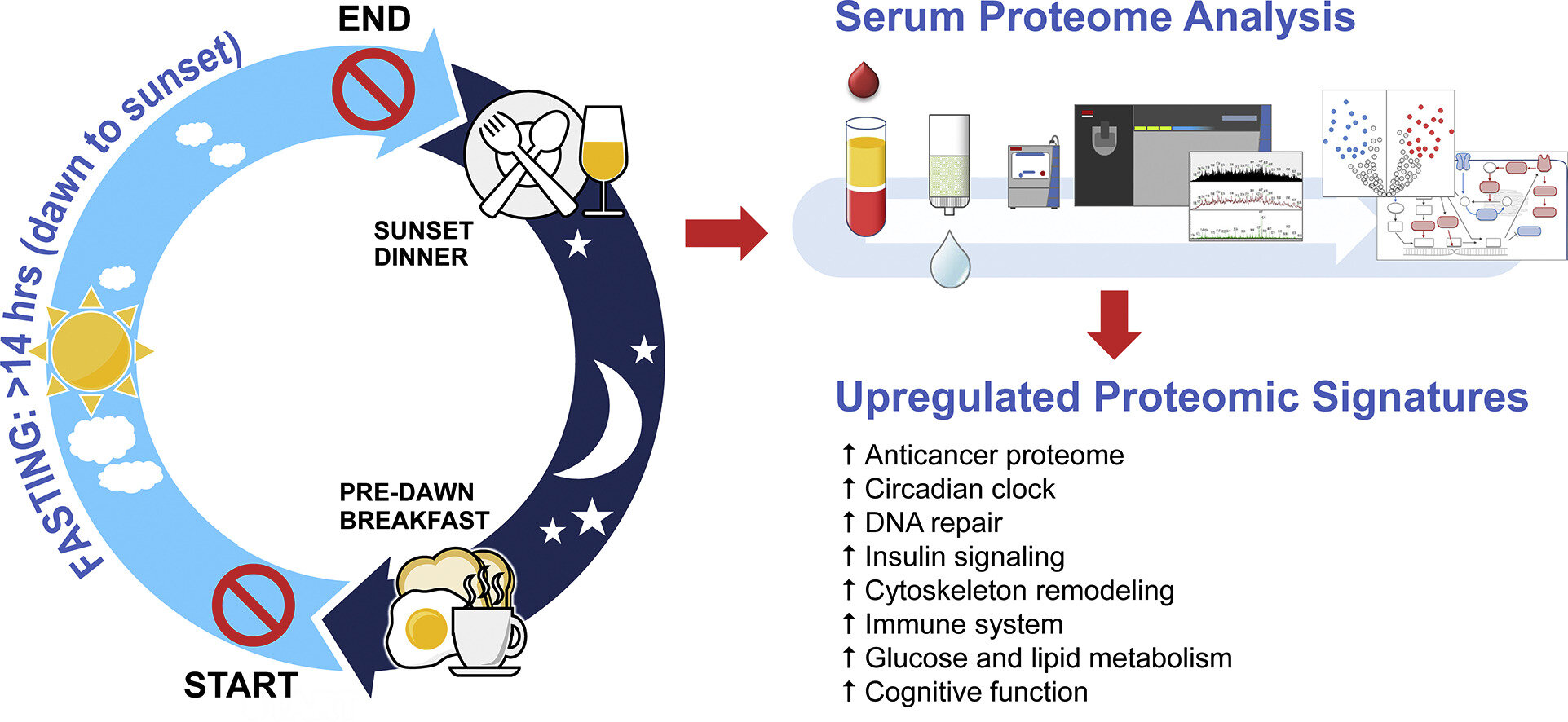In terms of the spotlight on modern health trends, methods and strategies of fasting or caloric restriction of some kind are positively glowing in it.
Genesised by a wave of new research into longevity, and propagated throughout American society in large part by the rise of dietitians and other scientists having ways of speaking to the public with things like blogs, YouTube channels, and podcasts, rather than the traditional method of academic publication, questions like what you eat are becoming less important than how much, or when.
A new study, published in Nature Proteomics continues to demonstrate how spending time in a fasted state has benefits that can outperform daily dietary allowances in terms of fighting cancer, and regulating lipid and glucose metabolism.
The study involves an examination into circadian biology, the study of our circadian clocks – the biological equipment attuned to and which regulate as a result of attunement to, the day/night cycles of our planet.
The study posits that a disruption of the rhythmic nature of circadian clocks, particularly the hepatic (the liver) clock, can lead to cancer and metabolic syndrome, a term for a variety of unsavory health outcomes arising from poor eating, sleeping, and exercise habits that can include but are not limited to diabetes, obesity, etc.
Creatures of the day
The study, written by Mindikoglu et al., found that mouse studies tended demonstrated an increased rate of cancer and metabolic diseases in rodents when their circadian rhythms were disrupted. A fast of 14 hours, starting at sundown and ending at sunset, has been repeatedly demonstrated to “reset” the clocks, allowing them to operate off the dysregulated rhythm of the “master clock” also called the suprachiasmatic nucleus, which during normal activity, all other clocks attune themselves to.
Even though rodents are nocturnal creatures, in that they do most of their activity at night, the authors imagined the effect of a similar 14 hour sundown to pre-sunrise fast would have the same benefit in humans even though we are a diurnal species.
“…we hypothesized that intermittent fasting for several consecutive days without calorie restriction in humans would induce an anti-carcinogenic proteome (something like a cell’s protein profile) and the key regulatory proteins of glucose and lipid metabolism,” writes the study.
Again, because the basis of the study are the data on mice fasting during their active period, the scientists thought it was only logical to make the human-trial participants fast during their active hours as well, since we are not creatures of the night.
14 healthy individuals including both men and women with an average age of 32, spent 30 days fasting from sunrise to sunset, beginning their day with a pre-dawn breakfast, and a twilight dinner.
In the scientist’s own words, their findings are significant, as their 30 day program resulted in “anticancer serum proteomic signature and upregulated key regulatory proteins of glucose and lipid metabolism, insulin signaling, circadian clock, DNA repair, cytoskeleton remodeling, immune system, and cognitive function, and resulted in a serum proteome protective against cancer, obesity, diabetes, metabolic syndrome, inflammation, Alzheimer’s disease, and several neuropsychiatric disorders”.
Significant findings
Time-restricted eating is not a new scientific dietary strategy. Dr. Sachin Panda, an expert in circadian biology, has been studying it for years, and has contributed mightily to the overall body of evidence of its effectiveness.
Normally however, Panda’s work, including some citizen-science crowd-sourced data, involves the period of fasting to extend across the solar night, with some hours before sundown and some after sunrise also marked by fasting.
Contrary to this approach, Mindikoglu et al. have taken a Ramadan-like strategy, and the findings are significant. Not only did they find the proteomic signature they expected, they also achieved it in their trialists without significant weight loss or any alterations of their diets.
Furthermore, they found significant increases in several proteins that are typically downregulated in the presence of different cancers. For instance, levels of LATS1, a large tumor-suppressor kinase which has been demonstrated to suppress proliferation and invasion of several kinds of tumors, were increased 9-fold by the end of week 4.
LATS1 is just a single example, and many different genes and proteins were either increased, or decreased, depending on which one results in a positive effect for stopping or eliminating or suppressing cancers of several kinds.
There is ancient wisdom contained within holy scriptures, and maybe the practice of Ramadan is more than what most people think it is, as the practice mirrors quite closely the trial conducted by Mindikoglu et al.



